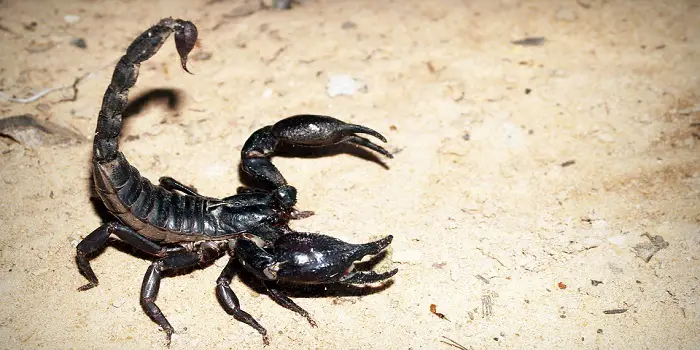
Fisher cats are classified as mustelid, and they are considered to be dangerous predators because of their big, sharp claws and teeth.
Fishers (fisher cats, pecan cats, or black cats) are also the carriers of several diseases or parasites; hence all types of contact should be prevented.
They can literally feed on anything they find, which becomes a major concern for people with pets, livestock, or vegetation.
However, as carnivorous, they can easily be trapped in a live trap by using their favorite food as bait.
Most of the time, fisher cats love to eat meat, and therefore, a skinned beaver carcass is a good bait for them if you want to catch them live.
The meat of other rodents like mice, squirrels, chipmunks, and rabbits can also work to bait a fisher cat.
Well, if you want to know more about these creatures like, what are they, how dangerous can they be, and how to deter or scare them away, keep reading further.
I hope you will find the information interesting and useful!
What is a Fisher Cat?
A fisher cat (Martes Pennanti) belongs to the weasel family.
The other members of this family include minks, otters, and pine martens.
Fishers usually like to live alone (except during mating). They can grow up to 2.5 ft. in length and weigh from 4.5 to 12lb.
So, it is roughly the size of a house cat.
The good thing to note here is it has no relevance to its name and it is neither linked to ‘Fluffy’ or ‘Tom’ nor does it eats any kind of fish.
Fishers also feature dark brown color fur which gets light near the head and neck region.
The color of fur may, however differ from one fisher cat to another depending on the region they are found in.
Fisher Cat Infestation
Fisher cats are secretive and prefer to live in solidarity.
Most of the time, they are found to maintain distance from human beings and don’t nest under their buildings.
However, they have witnessed a good rise in population after 2000, and hence they have become a matter of concern for house owners.
A lot of factors are responsible for the rise in sightings near the city areas. Some of these are:
- Rise in their habitat flexibility
- Reforestation of deserted lands
- Strict rules of trapping (Wildlife Protection Act of 1996)
- Regulation against the use of body holding or gripping leg traps

Are They Dangerous for Humans and Pets?
Fishers have sharp teeth and claws. They may get aggressive and nasty in case they feel threatened.
In rare cases, they may resort to biting, which can be dangerous (since they may carry a rabies virus).
You won’t believe it, but fisher cats are known to have high intellect and are brave enough to hunt and kill porcupines.
Though they don’t prefer living in close proximity to humans and are not very dangerous, they are known to attack house cats, small-sized dogs, and even the chickens in your backyard coop.
So, if your pet is outside, then make sure you keep an eye on it and don’t let your pet stay out during nighttime, as fishers are highly active during the night.
They may also carry and host a number of parasites and bacteria, namely ticks, rabies, and fleas. Hence you should avoid all types of contact with them.
How to Scare Away a Fisher Cat from Your Yard?
The fisher attacks are rarely seen as they don’t prefer to come near human habitats or open spaces where they can easily get trapped and killed.
However, as they are nocturnal, nasty pests that can boldly hunt chickens and small pets, you should keep an eye on your pets, especially during nighttime.
If you want to deter them completely so that they remain out of sight, the very first step you should take is to remove all the decaying organic materials in your yard.
Fishers may get attracted to the logs, bushes, stumps, etc., for nesting safely around your garden.
Therefore, consider trimming your trees and bushes. Also, mow your lawn and try limiting the places where they can hide.
A few other ways by which you can keep fisher cats away from your property are:
- Cover trash cans outside
- Keep all your pets indoors
- Install bright lights and sources of loud noise (like a rooster)
- Use a secured coop or barn if you have chickens in your yard
Predators
In addition, fisher cat’s predators can also be a way to deter them and protect your pets.
But sadly, there are not many out there that can kill them except Bobcats which can again be dangerous to attract.
You can instead scare away fishers through large guard dogs that are big enough in size. You can try getting one in your neighborhood if available or can rent.
Some of the popular breeds for guard dogs are Old English Sheepdogs, Bernese Mountain Dogs, and Great Pyrenees.
Chemicals and Repellents
Few commercial odor repellents that are made from the urine of predators (like foxes, coyotes, and wolves) can also be a good way to keep away the fishers from your yard.
The bottle of predator urine can be easily purchased online (for under $20), or you can buy them from nearby hunting or outdoor stores.
Just sprinkle some in your backyard, around the chicken coop (or create a perimeter around your house).
Most likely, you will not see the fishers coming again as they may smell the urine and think that there is a stronger predator present in your area.

Types of Trap and Baits to Use for Catching Fishers
Since they have silky and soft fur, which fetches a great price, fisher cats’ fur is highly valued in the commercial world.
This is why these furbearers are major trapping targets in North America.
The fact is – because of their nasty behavior and high fur rates, catching fisher cats is a common pursuit equally for house owners, sportsmen along with various trade men.
When trapping, catching, or scaring away a fisher cat from your home, you may need a trapping permit.
This means it is essential to get in touch with the state’s Department of Natural Resources to find out about the permit procedure.
Well, don’t get me wrong! I am not trying to tell you that you should be trapping them (shoot or kill) for their fur.
Rather if you are concerned about their infestation on your property, you should know how to deal with them.
Trapping them carefully and relocating to another faraway place is the best way out there to get rid of them – if they happen to enter your property.
Trap types
In general, you have three kinds of traps to catch fishers.
Body grip, cage traps as well as foot catch are the major traps to catch fisher cats.
Each of them has its own pros and cons. Plus, they are bound by state-enforced rules like the size of the trap, closeness to public trails, etc.
Cage traps are recommended for all weathers and allow you to capture and release the fishers alive same as foothold traps.
Body grip traps, on the other hand, usually kill the trapped animal and do not allow you to release the animal alive in the wild.
When buying any of these animal traps, cage traps, or trapping boxes, make sure that you keep in mind the size of the fishers.
They may require a trap that is about 32 X 10 X 12.75 (in inches) with a door size of 10 X 12 inches.
What bait to use?
Fishers are opportunistic animals and can eat anything. This means, at times, they can feed on meat and plant both.
Particularly they like to feed on the meat of snowshoe hare, squirrel, rats, shrews, mice, and voles.
Along with wild berries and cat food, fishy smells like skunk oil or fish oil also lure fishers.
While many trappers suggest beaver meat as a perfect bait for them, you can put virtually any of these foods as bait to trap them away.

Where are Fishers Usually Found? Signs of the Attack
They used to be seen all over the United States and Canada.
But as they were hunted, they have now reached the stage of extinction.
Fishers, most of the time, like residing in forest areas, be it deciduous or coniferous. It gives them the freedom to go from one tree to another in search of their food and shelter.
In the forests, they like to den inside empty trees like firs, white cedar, or spruces. The reason for it is because their preferred prey favors a similar habitat.
Though they can climb trees, fishers usually stay on the forest floor and like to stay in thick forests.
Seen in hardwood as well as softwood forests, fishers like to stay in regions with headcovers and don’t stay in areas without overhead cover.
Fishers also love to habitat on a floor with fallen branches, twigs, and wooden debris.
Female fishers don’t prefer too many logged regions as they require big trees to make their dens.
Signs of a fisher cat attack
As fisher cats prefer early morning and evening, chickens in your yard are highly vulnerable during these hours.
If you find your chickens missing during this time, most probably a fisher cat is around.
Fishers may also kill birds, especially when they are catching food for the tough times ahead.
They have a track the same as a house cat or fox and have 4 to 5 toes imprinted along with a C-shaped print of their pad.
They excrete the same as a fox, so it may be tough to pinpoint your chicken hunter by just identifying their fecal material.
Other Related Questions:
Do fisher cats spray?
Fishers belong to a group of animals that are known for giving off unpleasant, musky odors.
Like many other animals of the Mustelidae family, they usually give off these smells when they are disturbed, annoyed, or frightened.
Can fisher cats swim?
Yes, fishers can swim, and they are also very good at climbing trees.
They also possess an ability to rotate their hind legs, which helps them in climbing down the tree, much like a squirrel.
Why do fisher cats scream?
Fishers are non-social, and they are most probably known to make a terrible high-pitched screaming sound when they want to attract mates during the breeding season.
Sometimes they also make such sounds at night to warn other animals entering their territory.
There are also stories about these types of sounds that are made when fishers are actually mating or attacking other animals.
The Conclusion
As fishers like to roam without getting caught, their favorite habitat is riparian woods and forests.
However, fishers are gradually entering the urban areas, so don’t be stressed if you find one on your property.
If you are not afraid, you can capture the animal yourself by using the right trap and right bait.
If not, you can call for professional help to remove them from your property.
Share the post "What Kind of Bait Should You Use to Trap Fisher Cats?"

Welcome to ProShieldPest.com. I am Tina Jones. I have been working as a pest removal professional in Winslow, Arizona lately. At present, I love to spend my time with my family as a retiree.
Here I share all my knowledge and experiences to help people understand better how they can stop pests at their homes without actually killing them. Hopefully, the information you will find here will help in safeguarding your home! You can check more about me here.




